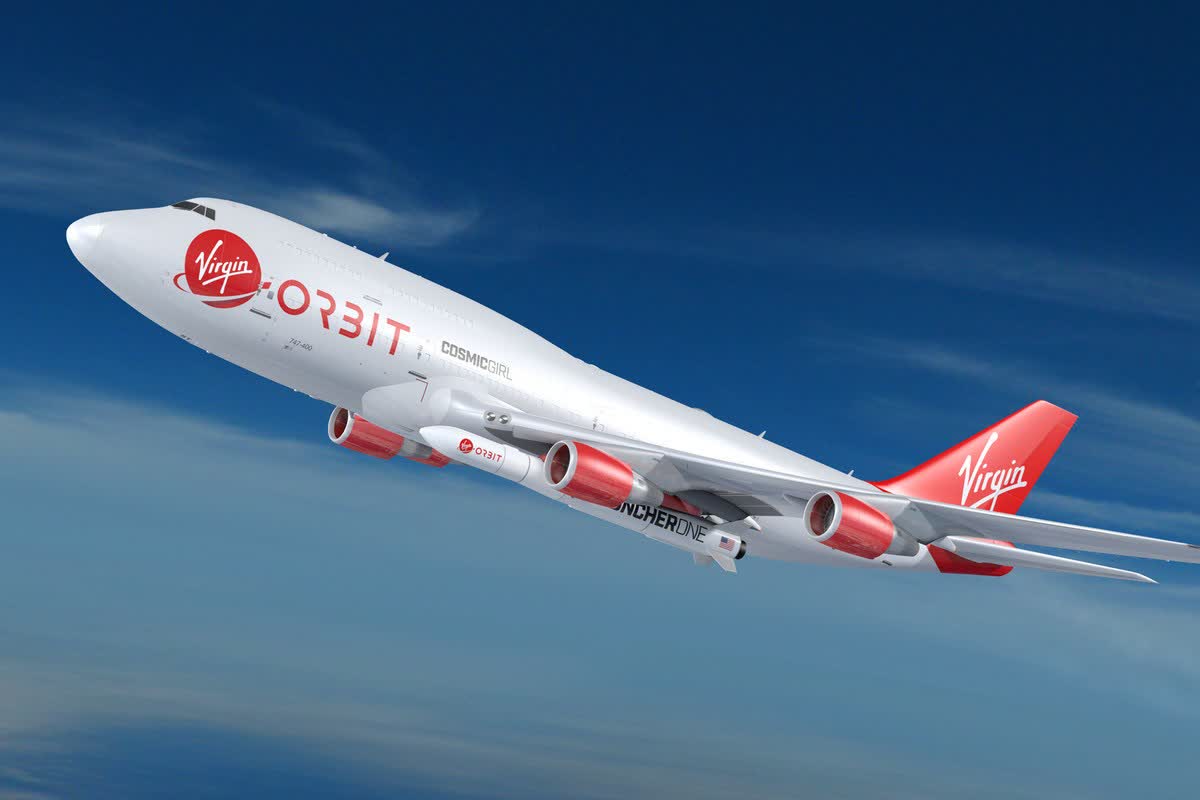Pete Flint
Posts: 40 +7
TL;DR: For the first time, Virgin Orbit's customized Boeing 747 will escalate to 35,000 ft and drop a rocket carrying several small satellites for NASA, hoping to send them into orbit. This will be the startup's first commercial flight and its biggest test since its failed mission last May.

Virgin Orbit, Sir Richard Branson’s satellite launch service that targets small satellite clients, is planning its second launch attempt today after a failed test in May 2020.
Virgin’s satellite-launching outfit works by flying a customized Boeing 747 airplane to 35,000 ft and dropping a rocket called the LauncherOne carrying the client’s cargo. LauncherOne then ignites and theoretically places one or more small satellites into orbit.
Since 2018, Virgin Orbit has launched successively more complex flight tests, which culminated in a full launch last May. The test was a failure as the LauncherOne rocket dropped from the 747 plane, which then ignited correctly, but a problem with the oxygen fuel line prevented its escape into orbit.
With weather looking favorable & our hardware in great shape, our team is on track for tomorrow’s launch. But the real fun starts late tonight as we begin loading our fuel, RP-1, onto LauncherOne.
— Virgin Orbit (@Virgin_Orbit) January 16, 2021
We’ll see you all in the morning as we open the day with cryogenic LOX loading. ❄️ pic.twitter.com/5yZc5tQyu6
The company seems eager to get their test underway today at 1pm ET. There will not be a livestream of the launch as we have come to expect with the SpaceX tests of late, but the Virgin company will be live tweeting throughout the event.
With operations for our #LaunchDemo2 mission already in full swing, it's an exciting morning here at Mojave Air and Space Port!
— Virgin Orbit (@Virgin_Orbit) January 17, 2021
LOX loading on the rocket has begun, and we're looking good to hit our target takeoff time of approximately 10:30 AM Pacific. pic.twitter.com/naBppEJRhD
Calling this a test however is slightly inaccurate as it is also Virgin Orbit’s first commercial mission for its client, NASA. Its package is a group of ten satellites commissioned by several universities, which will perform tasks ranging from collecting weather data to removing orbital debris.
Apparently, this launch was meant for earlier in December, but was delayed due to Covid-related quarantines of critical staff members. CEO, Dan Hart has ensured that precautions have been taken to keep their team safe as the test commences.
This is an important test for the young outfit as it serves as a proof-of-concept for their technology, which, unlike SpaceX, focuses on affordability for smaller crafts. “For too long, launchers have treated small satellite customers like second-class citizens,” reads Orbit's marketing material.
It seems we have an abundance of billionaire-related space news of late, and to that point, NASA seems to have their pick of methods to enter the stratosphere. If this launch goes well however, we can expect more very soon.